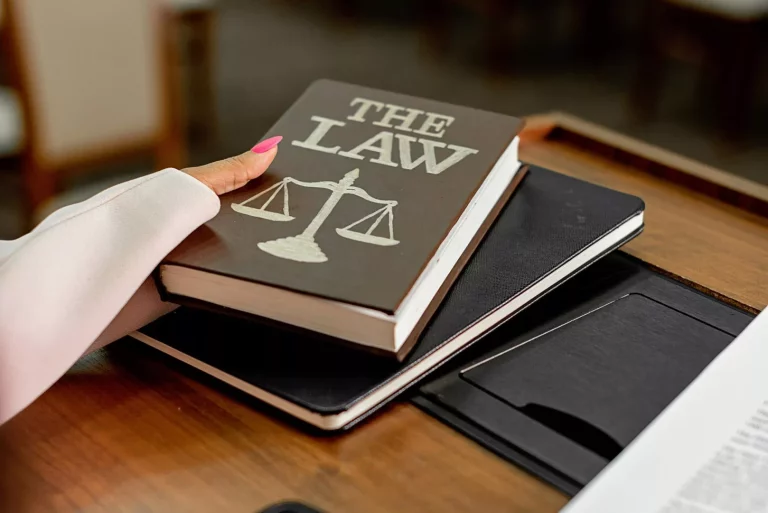Is Dissolution of Marriage the Same as Divorce?
Have you ever wondered if “dissolution of marriage” means the same thing as “divorce“? At TheBostonDivorceLawyer, we have the answers you need. Let us break it down for you in simple terms.
As demonstrated by Black’s Law Dictionary, dissolution of marriage and divorce are terms used interchangeably to refer to the legal ending of a marital relationship. Both terms encompass the same legal process of terminating a marriage contract.
Definition
The dissolution of marriage and divorce, I found out, both refer to the legal process of ending a marriage.
It seems that, this process involves sorting out issues like splitting up property, deciding who will take care of the children, and financial support. In both cases, the marriage ends legally, and both people can remarry.
While people often use dissolution and divorce interchangeably, they are slightly different. Dissolution usually means ending a marriage without blaming either party. Divorce, however, can involve blaming one party for the marriage breakdown.
Another difference is the time it takes to finish the process. If you think about it, dissolution is generally quicker and friendlier, with both parties agreeing on things together. Divorce can take longer and be more contentious, especially if there are disagreements about child custody or dividing property.
Legally, both dissolution and divorce end the marriage. Both need a court order to be official, and both parties must follow specific legal steps to complete either process.
Legal process
When I talk about the legal process of ending a marriage, I often refer to it as either dissolution or divorce.
On a serious note, when a couple decides to end their marriage, they need to go through a legal process. This process is often called either dissolution of marriage or divorce, depending on where you live.
To start this process, one spouse has to file a request with the court. You know, the process usually includes dividing shared property and debts, figuring out child custody and support if there are kids, and officially ending the marriage.
The exact steps and rules can be different depending on the state. It’s important for anyone wanting to end their marriage to know the legal steps involved and get help from a lawyer to protect their rights during the process.
Reasons for dissolution
Reviewing earlier themes, I’ve learned that while dissolution of marriage and divorce are often used interchangeably, they actually have some distinct differences.
You know, Dissolution usually means legally ending a marriage, while divorce specifically means a court has ended the marriage. There are many reasons why a marriage might end.
One common reason is irreconcilable differences, meaning the couple can’t get along anymore. This could be due to problems with communication, money issues, or wanting different things in life. Another reason could be infidelity, where one or both partners cheat, breaking the trust in the relationship.
My point is, in some cases, problems like domestic violence or substance abuse can make the marriage unsafe for one or both partners. Ending the marriage might be necessary for their safety. Also, a lack of intimacy or physical attraction can be a reason for ending the marriage.
Effects on children
Explaining more on the topic, when my parents decided to end their marriage, I experienced firsthand how significantly it affected me.
It seems that, the terms dissolution of marriage and divorce both mean the same thing: the end of a marriage. When parents separate, it can have the same impact on their children, regardless of what it’s called. Kids might feel confused, sad, or angry and struggle to understand why their family is changing. They could also worry about what will happen next.
Children of any age might show changes in behavior like acting out, becoming withdrawn, or having trouble paying attention. Adjusting to new living arrangements or schedules can be hard, especially if they are moving between two homes. To be fair, younger kids might have a hard time talking about their feelings and may show changes in their eating or sleeping habits.
Apart from emotional and behavioral issues, children of divorced or separated parents might also face financial difficulties or changes in their lifestyle. They might have to get used to living in two different homes, which can make them feel unstable and unsure.
It’s important for parents to understand how their separation can affect their children. Getting help from a therapist or counselor can support kids as they deal with their feelings and adjust to the changes that come with their parents’ divorce or separation.
Financial implications
As highlighted before when I decided to end my marriage, I quickly realized there are significant financial implications that need to be considered.
Honestly, dissolving a marriage, like a divorce, involves dividing up assets and debts that were gathered during the marriage. This can include things like bank accounts, property, retirement savings, and other financial resources. Debts taken on during the marriage also need to be shared.
One big financial issue in dissolving a marriage is dividing property. This can be tricky, especially if the couple owns valuable things like a house or business. Deciding who gets what can be tough and may need lawyers or mediators to help reach a fair decision.
Another financial issue is spousal support, or alimony. This is money one spouse pays to the other to help them after the marriage ends. The amount and length of these payments can vary based on things like how long the marriage lasted, each person’s earning ability, and sacrifices made by one partner to support the other.
Child support is also important if the couple has children. The parent who doesn’t have custody might need to make regular payments to help with the children’s needs. The amount is usually set by state rules and considers the parents’ incomes and the children’s needs.
The Final Analysis
As previously stated in conclusion, while dissolution of marriage and divorce both refer to the legal end of a marriage, there are some key differences between the two processes.
What TheBostonDivorceLawyers is stressing the need for is, dissolution typically implies a more amicable and mutual agreement between the spouses, while divorce may involve more conflict and legal proceedings. Ultimately, the decision to pursue dissolution or divorce depends on the specific circumstances of the marriage and the preferences of the parties involved.
References
Here is the literature that I was using for drafting this article:
- “Divorce: What Are the Legal Standards for Divorce?” by Karen Covy, Divorce Girl Smiling, Karen Covy
- “Legal Forms for Divorce & Separation” by Nolo, Nolo
- “Marriage, Divorce, and Remarriage in the 21st Century” by Scott M. Stanley, Howard J. Markman, Susan L. Blumberg, Wiley







